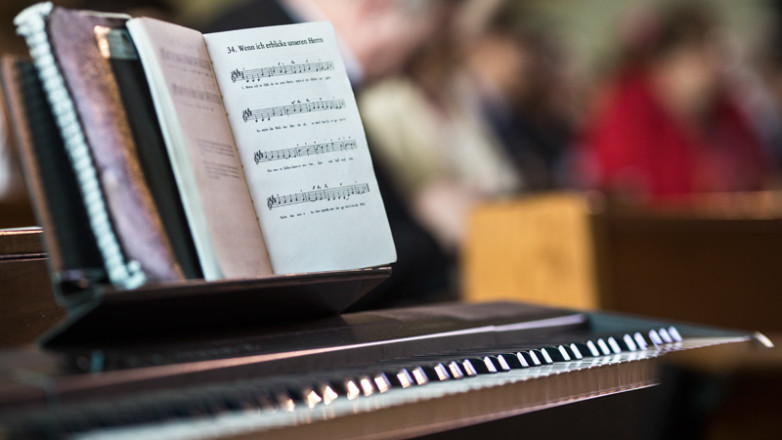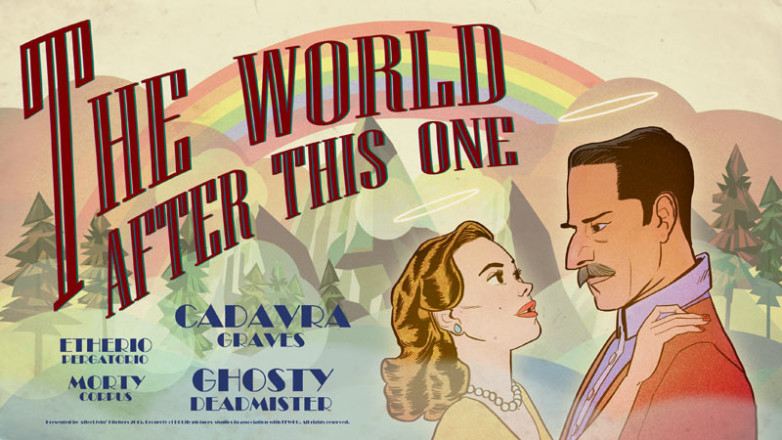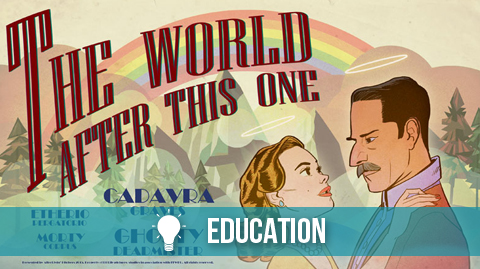Teaching About the Spirit World
One of the unique hallmarks of the Divine Principle and True Parents’ teachings is the idea of eternal life. We understand that after our physical life, we continue to live in the Spirit World. From the way we think about the Spirit World to how we celebrate the Seonghwa ceremony, our traditions and understanding goes deeper than many other religions and perspectives have gone. How do we explain the Spirit World to our friends and guests? The articles below are educational resources that take a closer look at the Spirit World.

What We Leave Behind
This personal account of losing a loved one explores the conflicting emotions of happiness for their new live and grief for the end of their physical life. With True Father’s words, the writer explores the rebirth into the Spirit World and how our relationship changes with those who have ascended while we are still on earth.

Dying to Understand: Movies About the Afterlife
Beyond just believing in an afterlife, Unificationists have an understanding of what that life is like. True Father has often explained this, in terms of how our physical lives prepare us for our spiritual life, how we enter the Spirit World as families, and the different “levels” of the Spirit World. This article is a list of popular movies that hold some truth in the way they depict the Spirit World.


Jack
| #
Are you Bible believing Christians.
My understanding is that Moon had been a Christian pastor at first.
Reply
Scott Dolfay
| #
Just happened to stumble on Jack’s question. I am not a seminary grad, the following is my answer and doesn’t represent Unificationists as a whole:
Rev. Moon’s family converted to Christianity. Even in his youth he was intensely serious about understanding the Bible. Prayer, study and spiritual conditions lead to revelations culminating in the “Divine Principle (Unification theology) very much based on the Bible. While there is a great deal of overlap with traditional Christian teaching it basically rejects the Nicene Creed, the main Christian statement of belief.
Other faiths i.e. Mormonism, Jehovah Whiteness, similarly reject the creed but insist that they are Christian. As a faithful Unificationist myself it’s a non-issue whether I’m considered Christian or not. The important thing is that we have ‘Judeo-Christian values’. In some respects our theology has more in common with Judaism, especially say with Christology.
Reply
Scott Dolfay
| #
Left out of the movie list were “Flatliners” (1990) starring Kiefer Sutherland, Julia Roberts, Kevin Bacon, William Baldwin and Oliver Platt. It was a bit scary dealing with the afterlife in an interesting way. The previous year had “Always”. More of a romantic drama. Directed by Steven Spielberg, and starring Richard Dreyfuss. I’m sure I could think of more in time.
Reply
Frank Bell
| #
However, while many people believe, what explanation is there that makes sense in relation to the scientific understanding of the universe? I don’t see much interest in discussion of this, even within Unification Thought seminars.
Reply